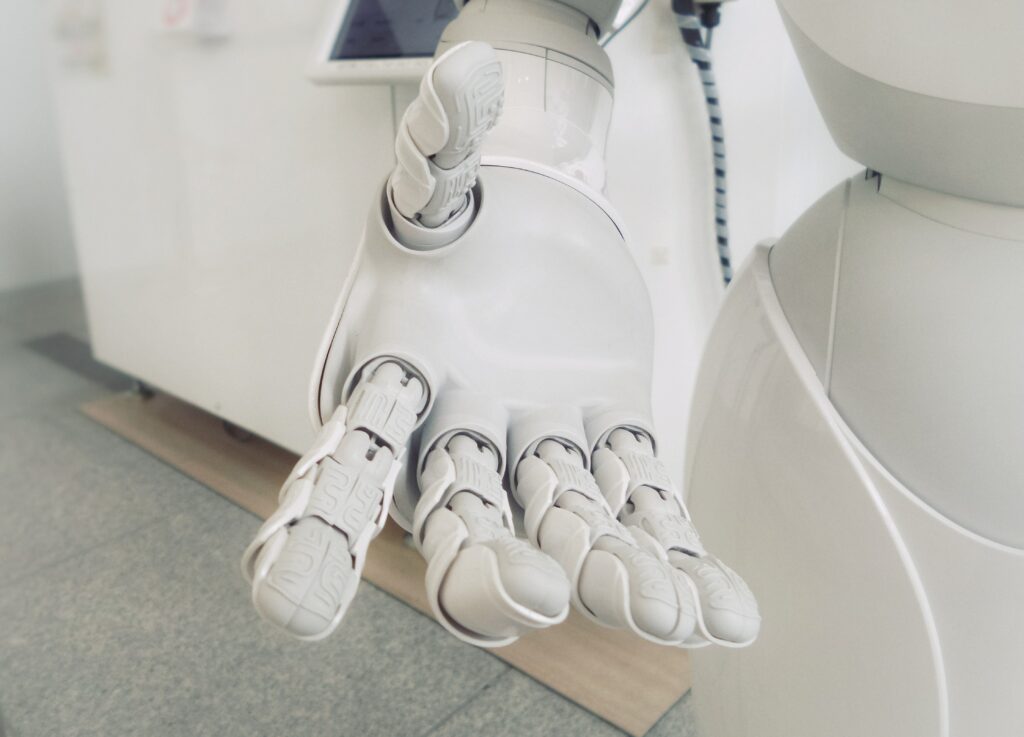With the development of AI, robots have become a lot smarter. A quick Google or Youtube search will reveal many cases of people using advanced robots. For example, videos of robots packing shelves in factories or, even more impressive, the Ocean One Robot, an advanced humanoid that explores shipwrecks and plane crashes.
These videos make many wonder how far we are from using such robotics in everyday life. Learn what today’s robots are capable of, what potential challenges need to be solved and if humanoids are ready for daily life.

3 Humanoids Robots Helping Humans Today
One reason advanced humanoid robots are in demand is their ability to handle dangerous and repetitive operations. This frees up humans to focus on other essential, safer tasks. Current AI robots such as humanoids and cobots are already assisting humans by completing various tasks — bomb disposal, surgery, packing items in grocery stores, self-driving vehicles and much more.
One industry that frequently utilizes AI robots is the manufacturing sector. They mostly complete repetitive assignments such as packing items, material handling, assembly and welding. This speeds up production time and allows humans to tackle more complex or demanding tasks. Here are three different humanoid robots helping people.
- Digit
Agility Robotics has developed a humanoid robot well-suited for many tedious operations. The humanoid is called Digit and has fully functional limbs making it excellent at unloading packages from trailers and also delivering them. Digit is equipped with sensors in his torso to help him easily navigate complex environments.
- Nadine
Nadine is a realistic-looking social humanoid robot with various facial expressions and movements. She was developed in Singapore by researchers from the Nanyang Technological University. Nadine can recognize different gestures, faces, objects and is able to perform various social tasks associated with customer service.
- Promobot
Promobot is a humanoid that is suitable for many different service-oriented roles. In hotels, promobot can recognize guests, print receipts, issue keycards and check guests in. This humanoid is customizable and can even work as a medical assistant — measure blood oxygen and blood sugar levels.
Are Humanoids Ready for Daily Life?
Today’s humanoids are undoubtedly impressive, but AI robots have yet to reach the level of generative artificial intelligence — an advanced form of AI capable of holding detailed conversations when prompted. Many companies aim to combine generative AI with advanced robotics to make it more applicable for a wider variety of use cases.
Since most AI machines are developed for the use of single tasks, they tend to struggle when taking on multiple operations simultaneously. In other words, they aren’t very good at multitasking. This complex aspect would need to be addressed for AI robots to become a reality in daily life. The most advanced form of AI robots available today are self-driving cars, which have a long way to go before they are truly self-driving.
It is the same with humanoid robots. Although many of the AI robots available are amazing, it is clear there are still advancements needed, especially in the case of processing abilities. AI robots will need to understand a wide variety of interactions no matter how they are carried out — voice, keyboard commands, hand gestures and sometimes even facial expressions.
For AI humanoids to be applicable in daily life, humans need a deeper understanding of how they operate — training might be required.
Potential Challenges to Overcome With Future Humanoids
One of the biggest problems with AI humanoids today is their battery life. They can usually only work for an hour or two and then require charging. While the goal would be to use them for multiple hours on end, another approach might be to increase the battery life by a few hours and add fast charging.
In terms of complex and challenging tasks, many humanoids and cobots are quite advanced and can solve them with relevant ease. However, this usually means they lack in other areas, such as movement. In most cases, the humanoid has advanced movement or impressive processing abilities, but not both.
In addition, the technology today’s humanoids use will also need further improvements. Better censoring capabilities are necessary in terms of in-depth cameras, voice and visual sensors to make them more applicable in modern life. For humanoids to become more widely used, their movement and processing abilities require further refinement.
Humanoids also need to operate safely and effectively while working with multiple humans at the same time. The robot will need to comprehend numerous interactions with different people simultaneously to react appropriately. The current training methods used with humanoids today are slow and would need further refinements to make them available for daily life.
Humanoids Robots Still Have a Long Way to Go
The advance of technology and AI is astounding, especially when combined to create robots that assist humans with numerous tasks. However, there are still a few areas where humanoids need refinement to become suitable for everyday use. Undoubtedly, humans will benefit significantly from utilizing advanced AI robotics in their daily life, but for this to become a reality, humanoids still have a long way to go.
Guest article by Ellie Gabel. Ellie is a writer living in Raleigh, NC. She's passionate about keeping up with the latest innovations in tech and science. She also works as an associate editor for Revolutionized.
Pingback: Robots-Blog | Are We Ready for Humanoid Robots? – TechToday